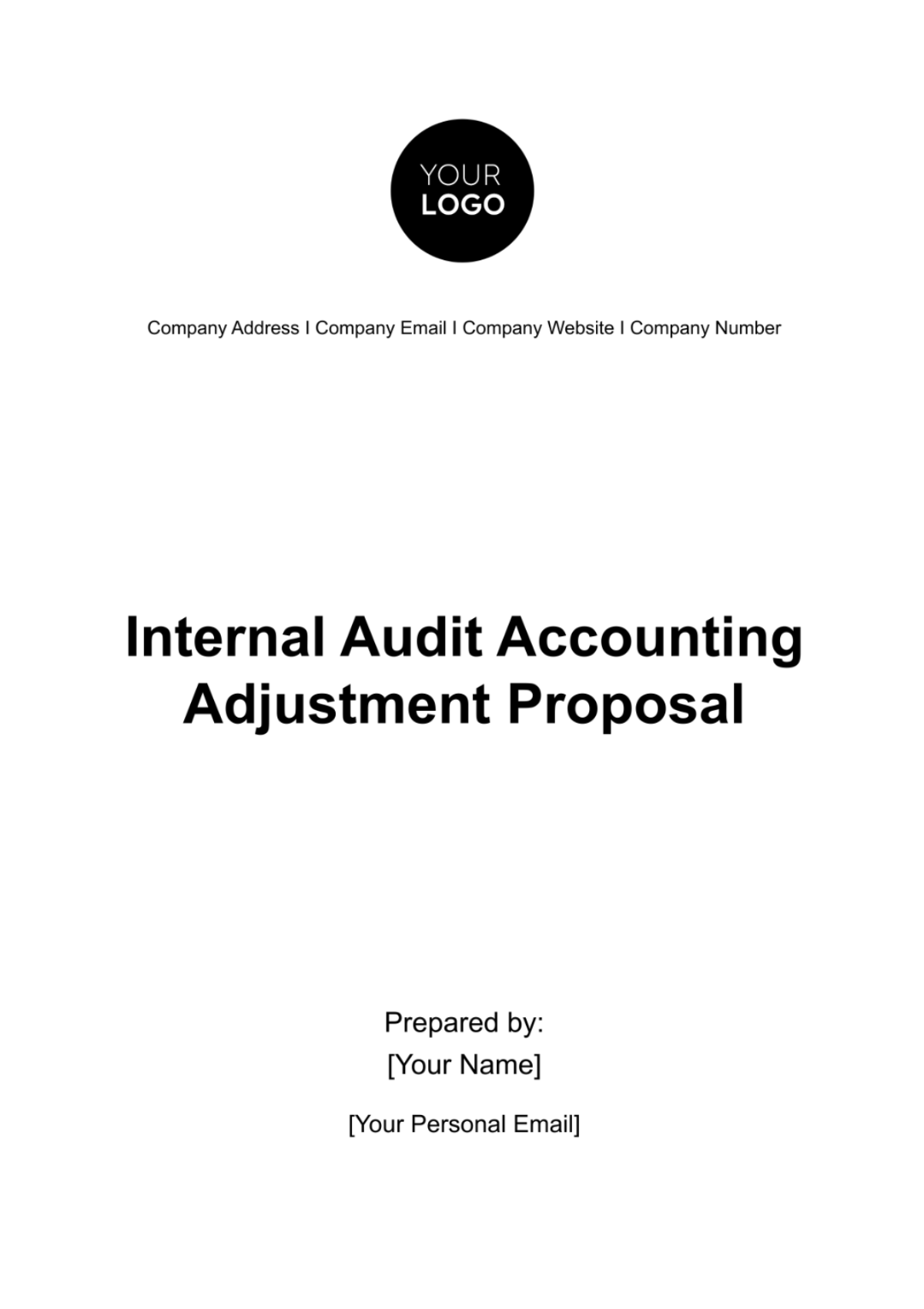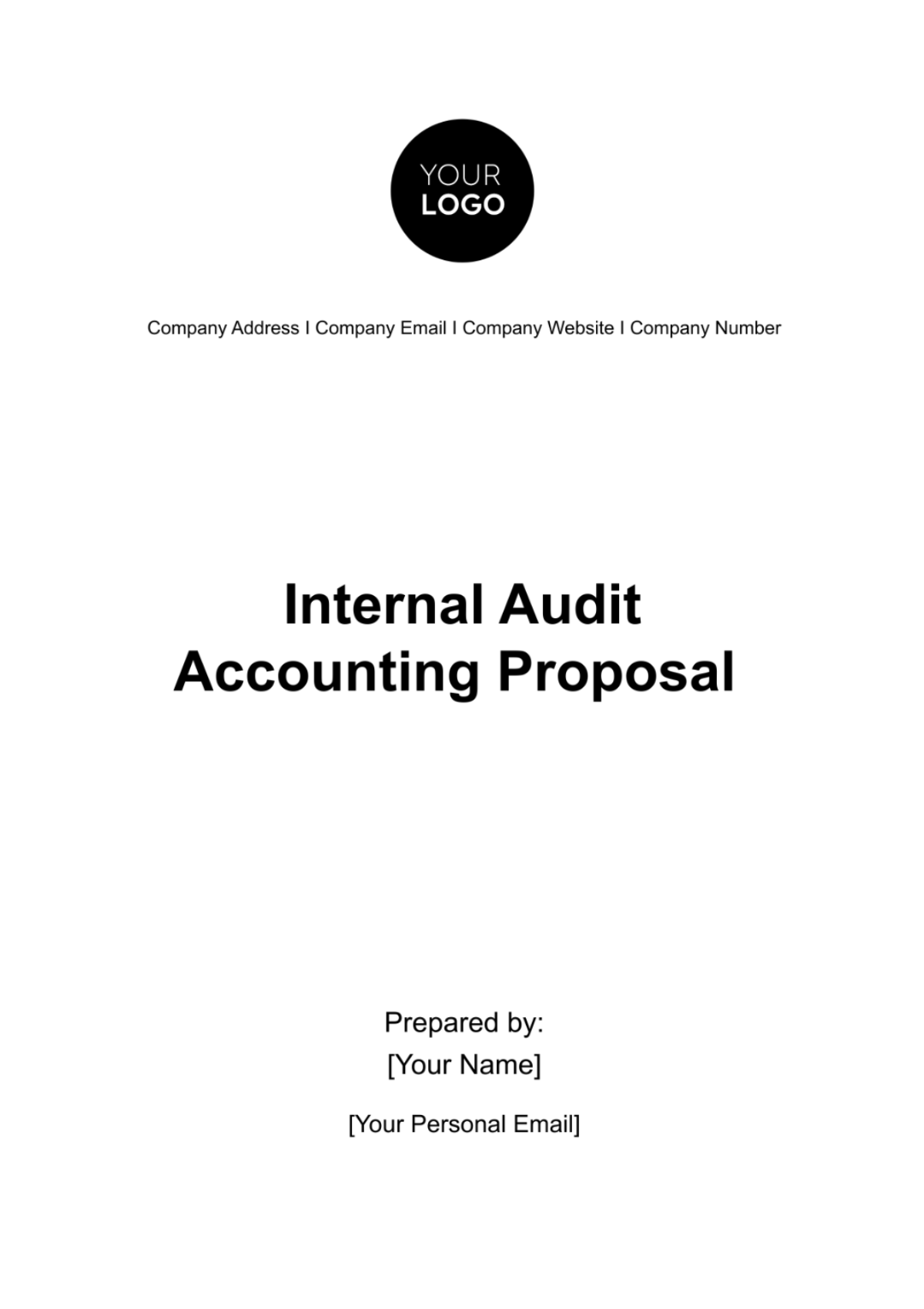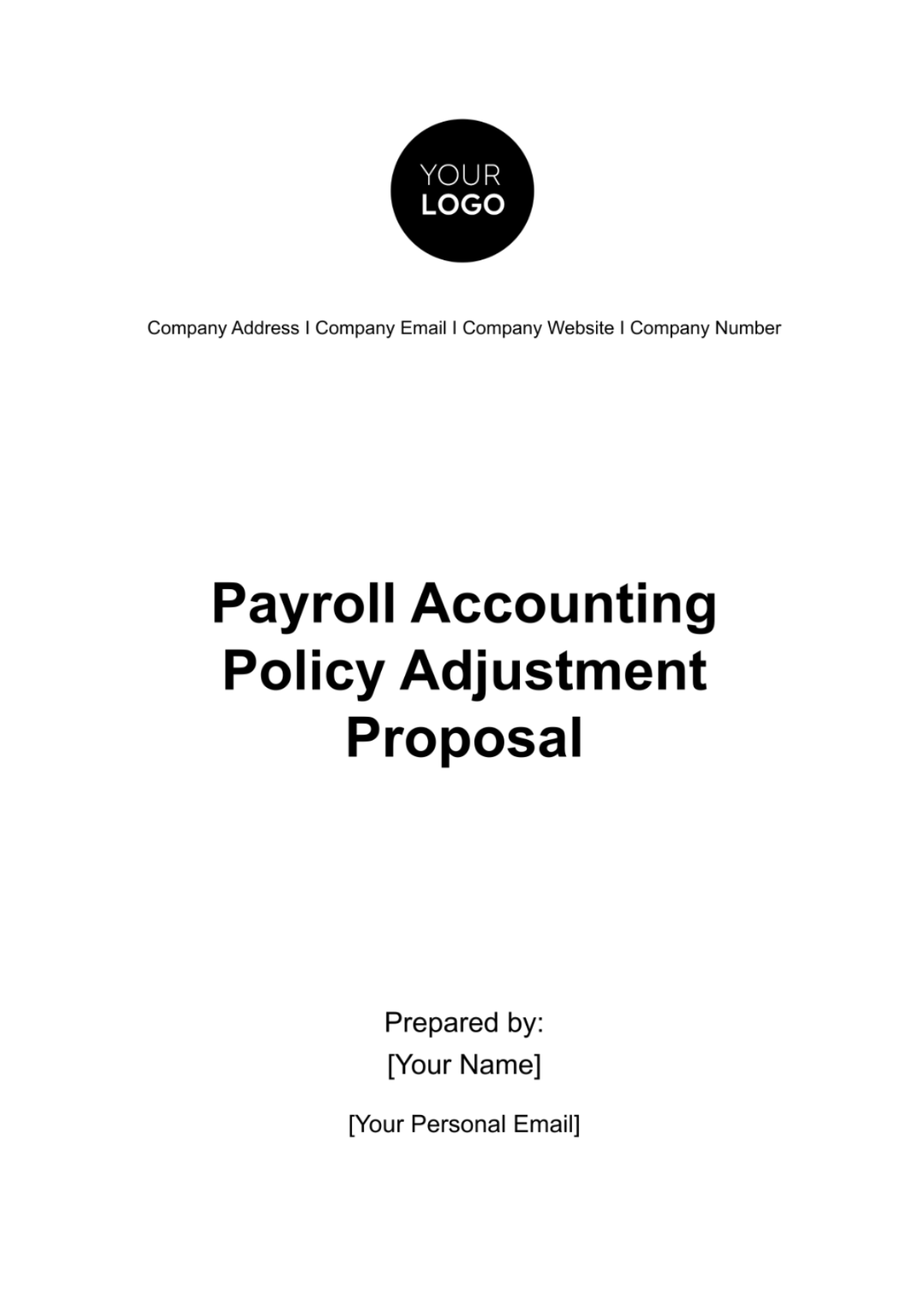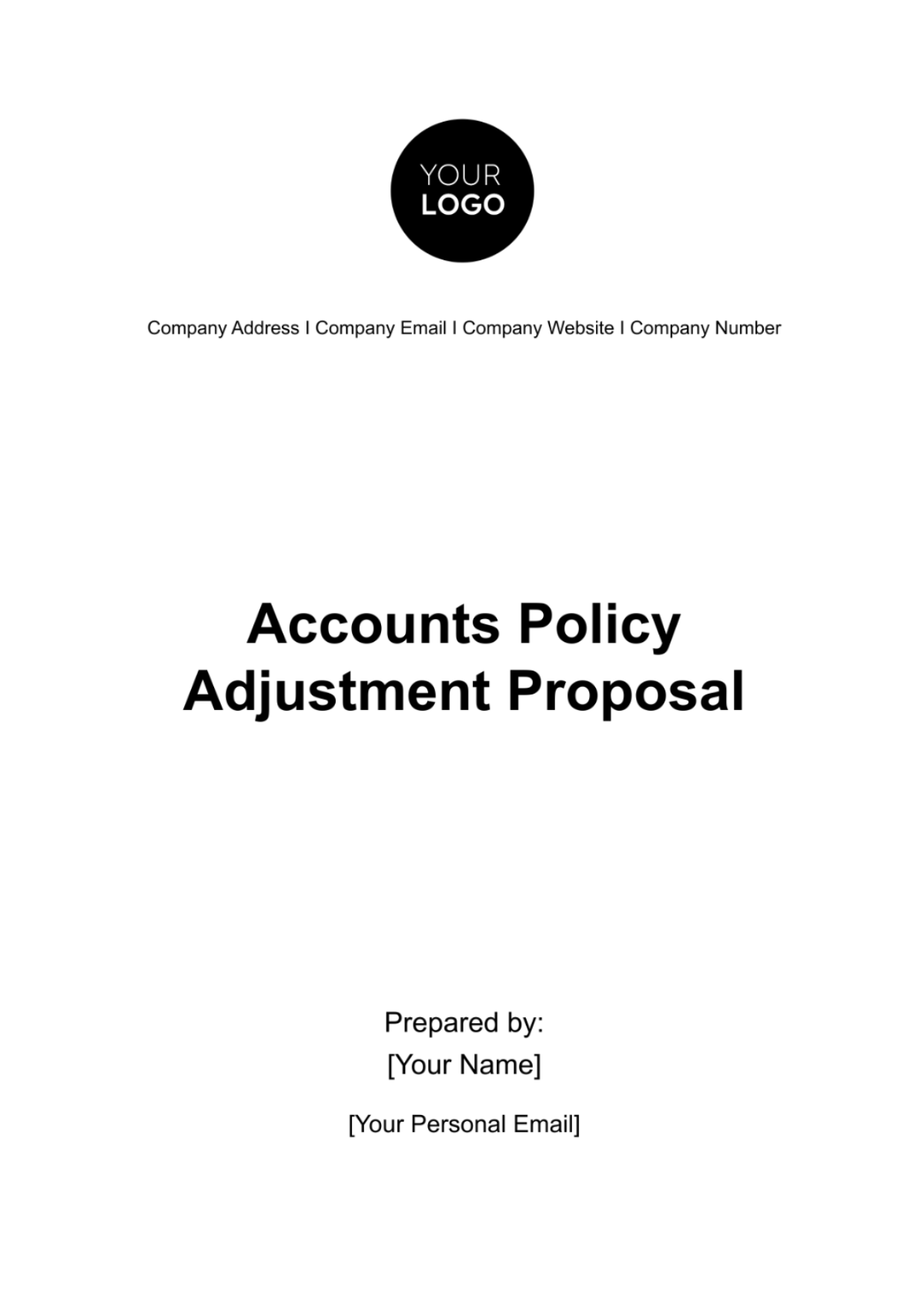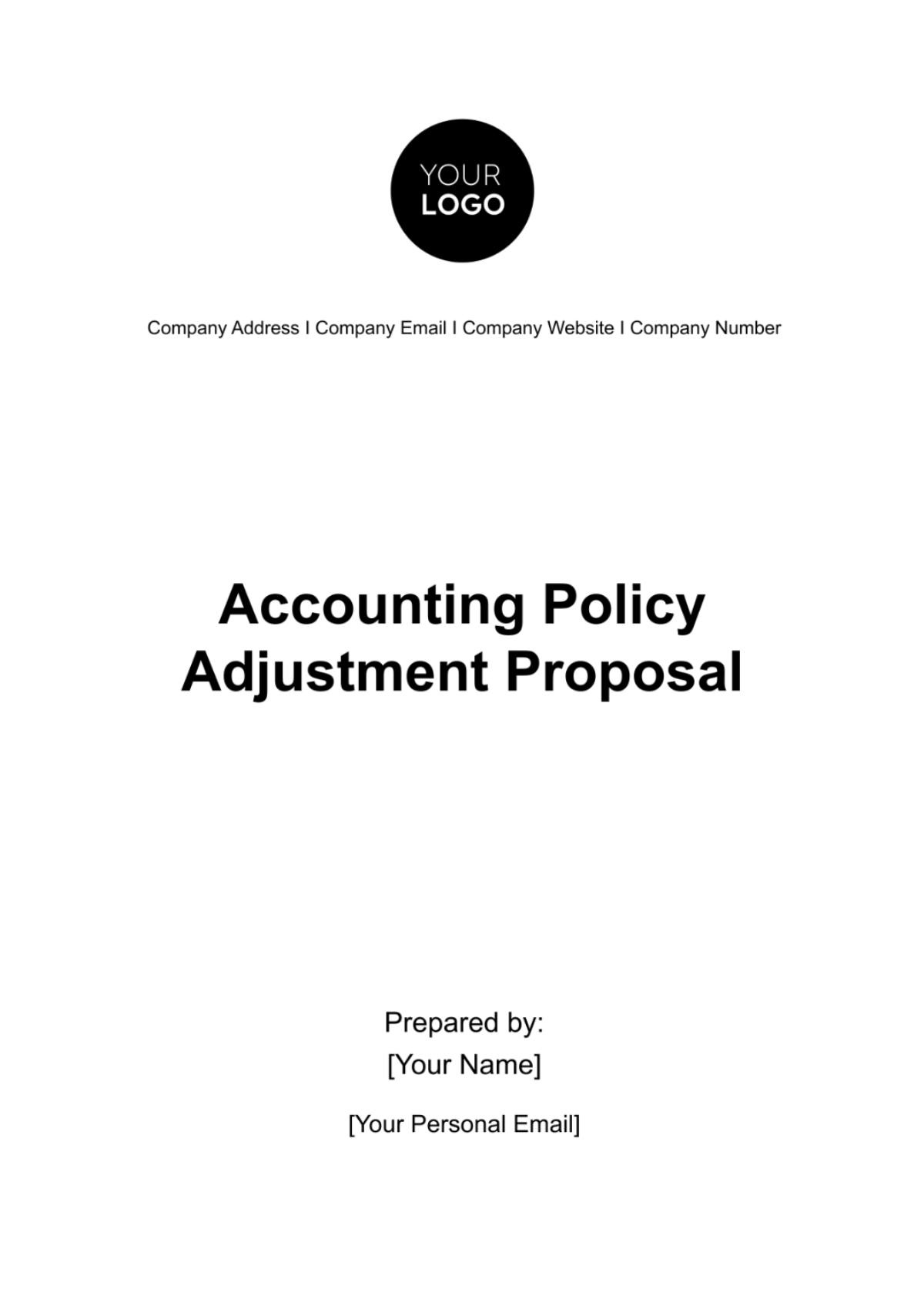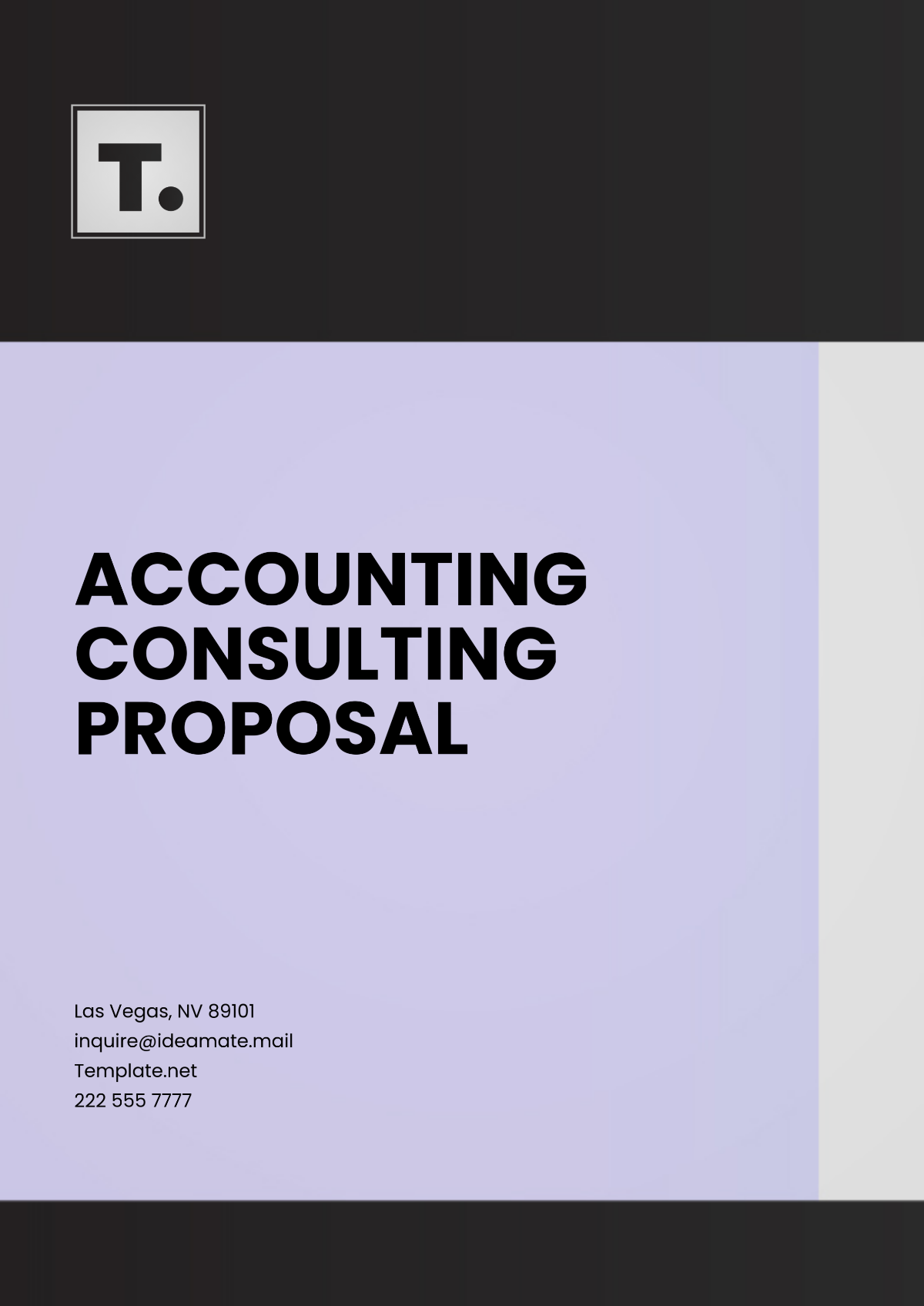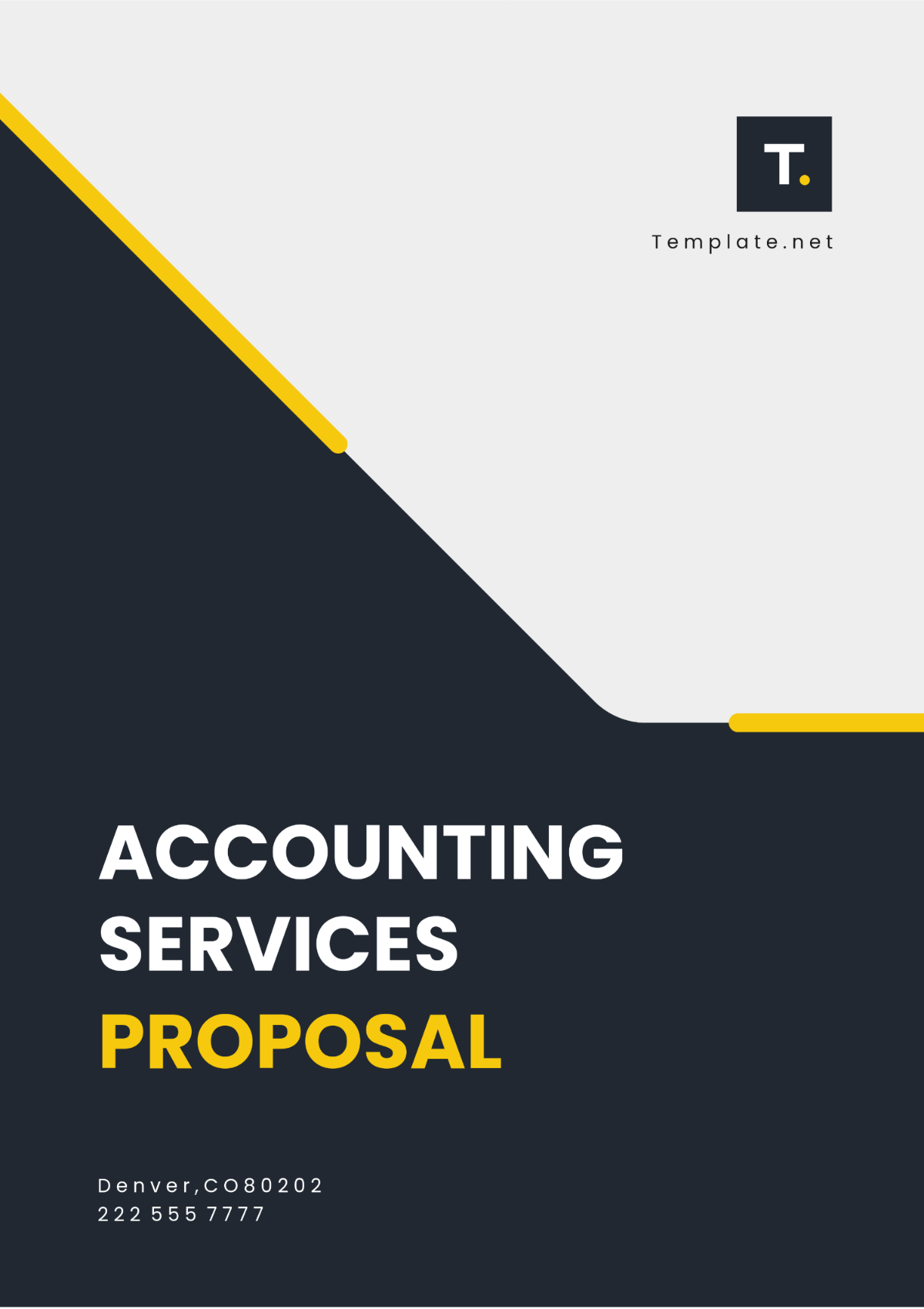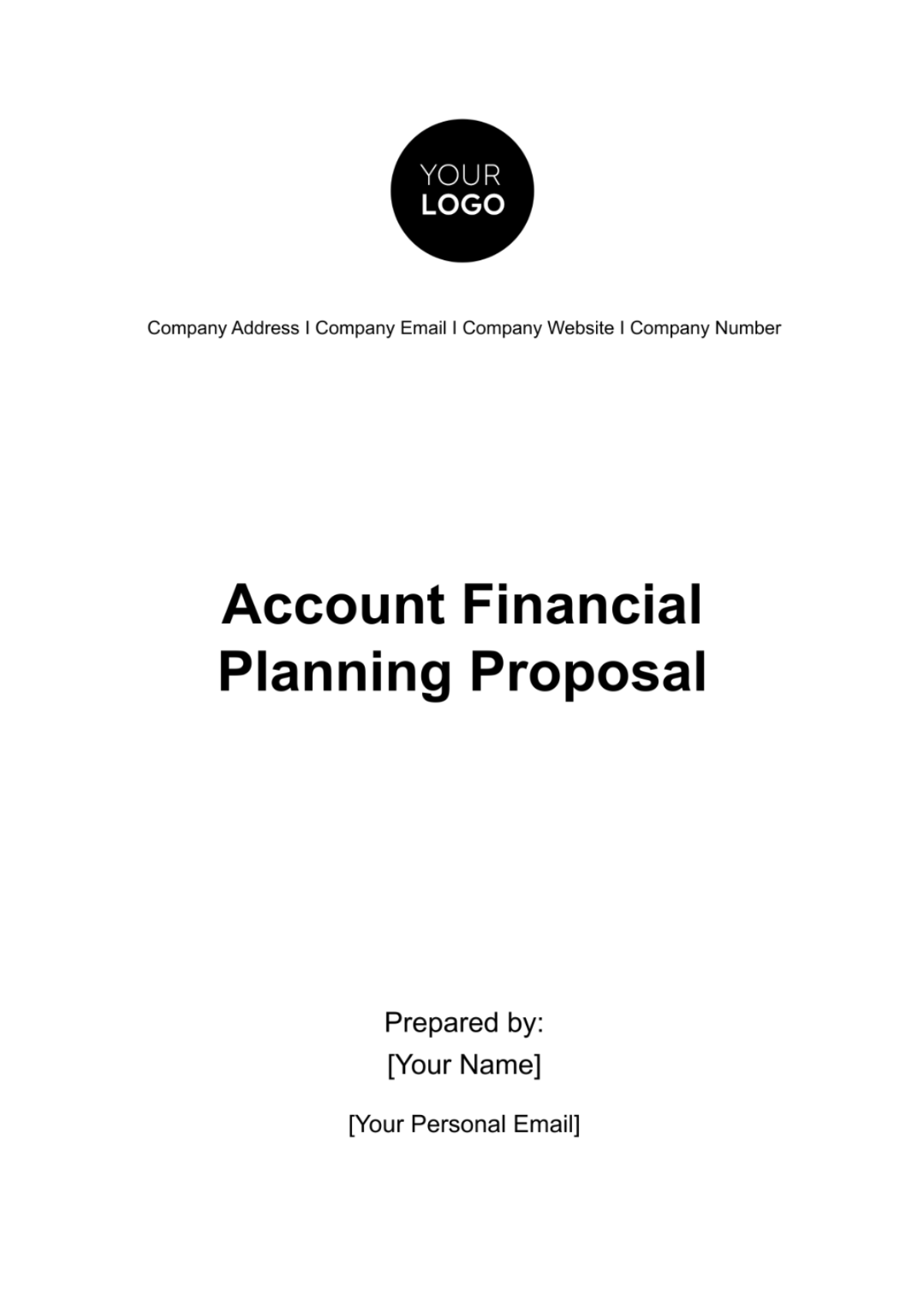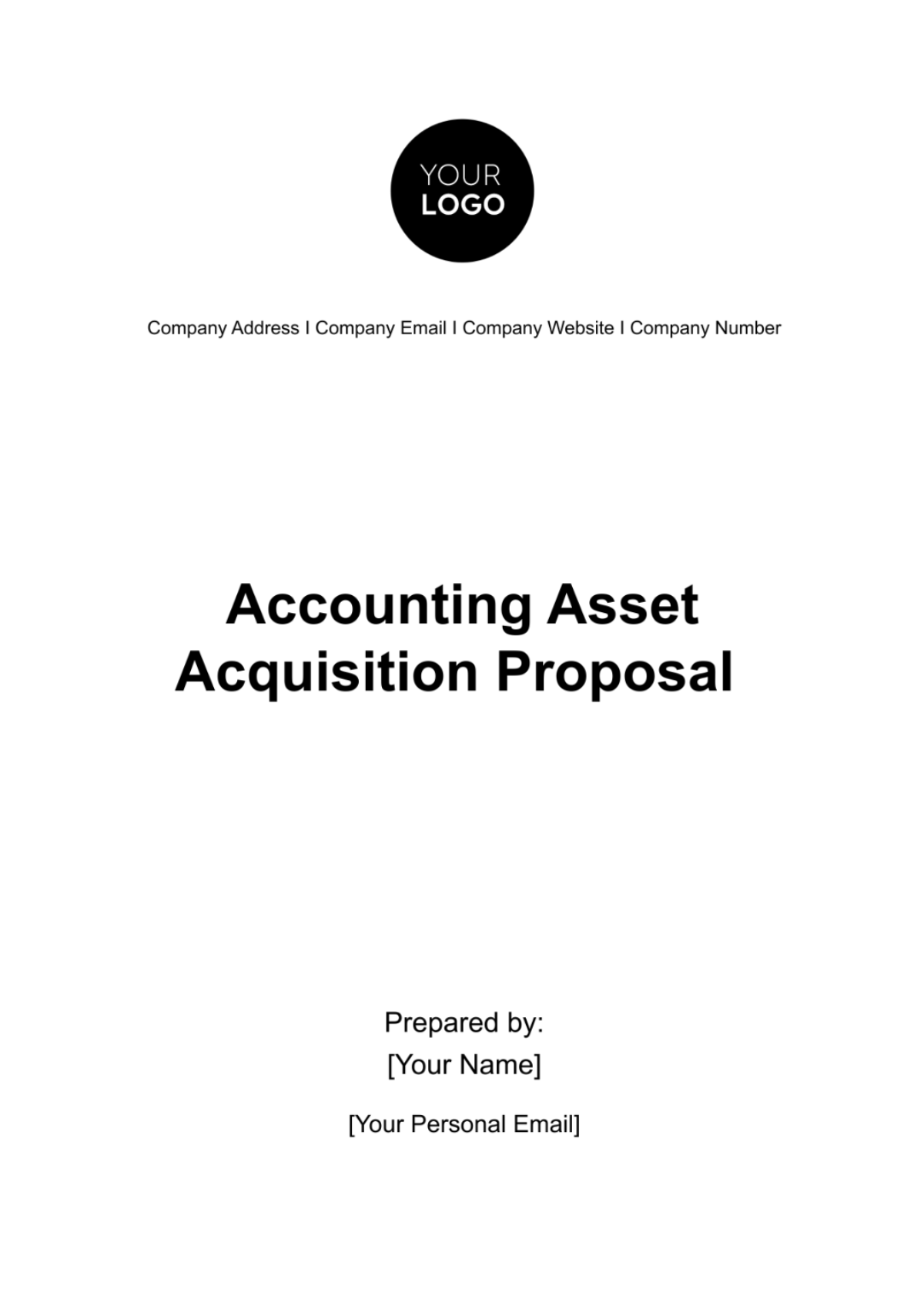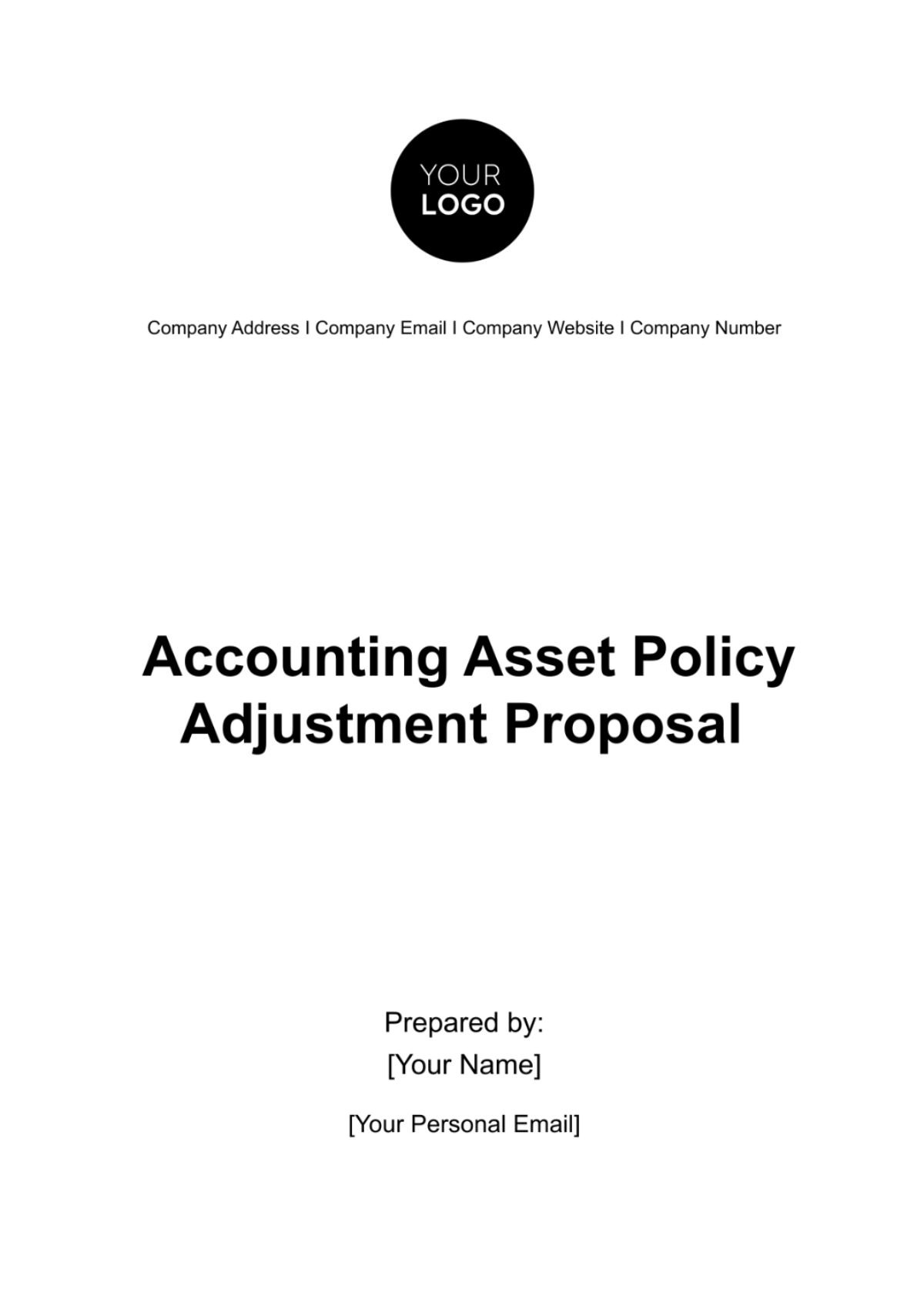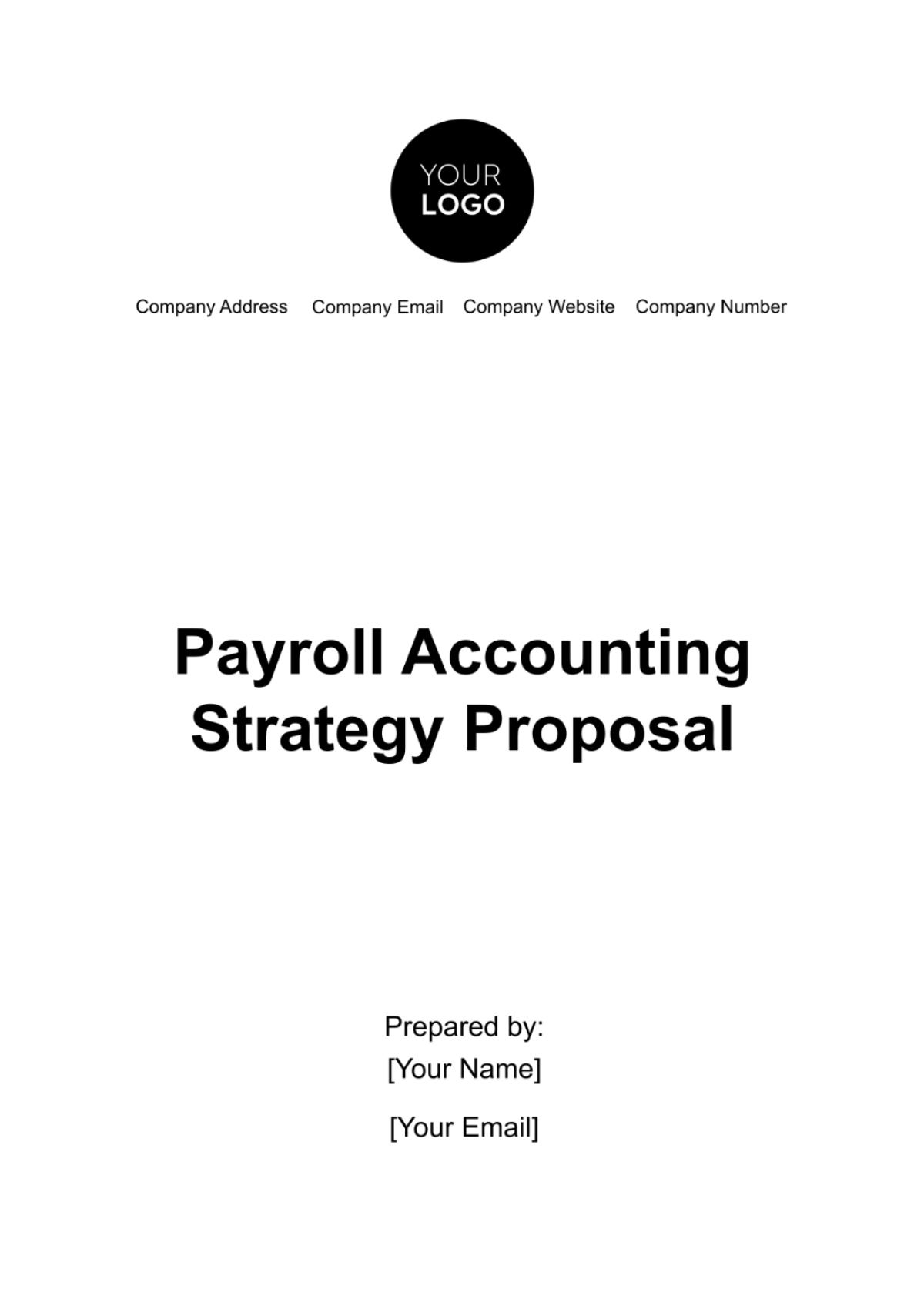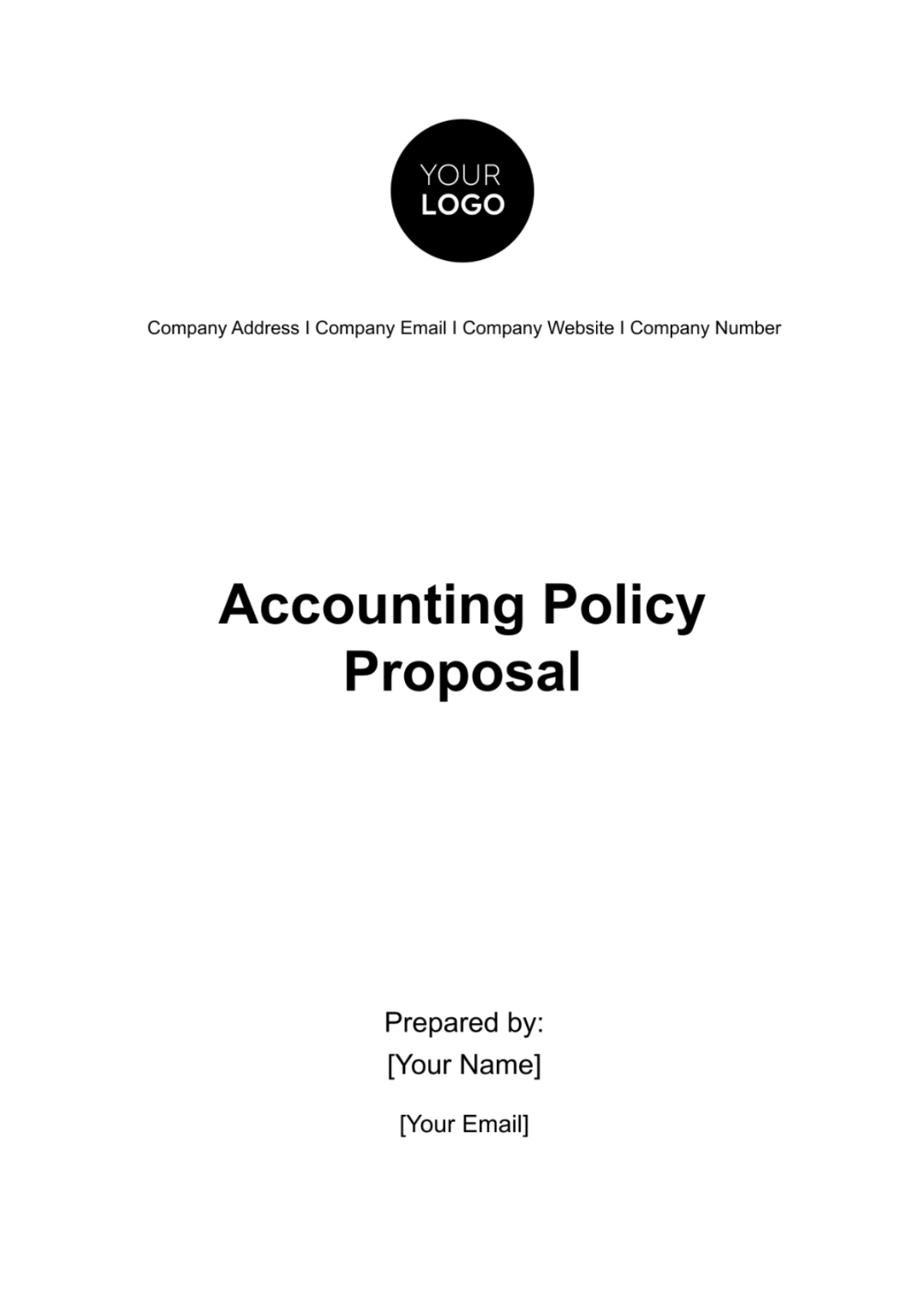Accounting Policy Proposal
TABLE OF CONTENTS
Executive Summary...............................................................................................3
Objectives...............................................................................................................4
Methodology...........................................................................................................5
Scope.......................................................................................................................7
Timeline...................................................................................................................8
Budget.....................................................................................................................9
Benefit and Impact.................................................................................................10
Risks and Mitigation................................................................................................11
Conclusion................................................................................................................12
Executive Summary
The primary objective of this proposal is to overhaul our existing accounting policies in [Your Company Name], a pivotal move aimed at elevating the operational efficiency and strategic effectiveness of our organization. By adopting these revisions, we anticipate achieving a marked increase in the precision and reliability of our financial reporting. These alterations will facilitate a more robust and agile financial framework, empowering our organization to adapt swiftly and efficiently to the market dynamics and regulatory environments.
Objectives
These objectives are crafted with the utmost precision, intending to fundamentally transform our financial management practices. They are pivotal to reinforcing the structural integrity of our financial operations and are aligned with our overarching vision of sustained organizational excellence.
Comprehensive Upgradation and Standardization of Accounting Practices:
This objective focuses on updating and standardizing our accounting practices and methods. The aim is to establish a uniform and streamlined accounting framework that conforms to the highest industry standards. This will involve revising existing protocols, integrating advanced accounting methodologies, and ensuring clarity in all financial procedures. The outcome will be a robust, consistent accounting system that enhances operational efficiency and reduces discrepancies.
Enhancement of Accuracy and Transparency in Financial Reporting:
The second objective targets a significant improvement in the accuracy and transparency of our financial reporting. By implementing cutting-edge accounting tools and rigorous audit processes, we aim to elevate the reliability and clarity of our financial disclosures. This initiative is crucial for building stakeholder trust, complying with regulatory requirements, and maintaining an impeccable financial reputation.
Strengthening Financial Decision-Making and Risk Identification:
The third objective is to enhance our financial decision-making process and bolster our capacity for identifying potential financial risks. By adopting advanced analytical tools and risk assessment models, we will gain deeper insights into our financial health and market trends. This will enable more informed and strategic financial decisions, equipping us to navigate complex financial landscapes and identify risks proactively. The focus will be on fostering a culture of data-driven decision-making and risk-awareness that aligns with our long-term financial goals and objectives.
Optimization of Cost Efficiency and Resource Allocation:
The fourth objective centers on optimizing cost efficiency and resource allocation within the organization. Through detailed cost analysis and resource allocation strategies, we aim to identify areas where cost savings can be achieved without compromising operational quality. This objective seeks to ensure that our financial resources are allocated judiciously, maximizing our financial efficiency and sustainability. By minimizing unnecessary expenses and optimizing resource utilization, we can enhance our overall financial performance and competitiveness.
Implementation of Sustainable Financial Practices:
The fifth objective underscores our commitment to sustainability in financial management. We will integrate sustainable financial practices that take into account environmental, social, and governance (ESG) factors. This includes responsible investment decisions, ethical financial practices, and initiatives that align with environmental and social responsibilities. By embedding sustainability into our financial decision-making, we not only contribute to a more sustainable future but also enhance our reputation as a socially responsible organization, attracting environmentally and socially conscious stakeholders. This objective aligns with global sustainability goals and reflects our dedication to responsible corporate citizenship.
The implementation of these objectives will be instrumental in propelling our organization towards heightened financial proficiency and strategic resilience. Each objective has been thoughtfully formulated to address specific aspects of our accounting and financial processes, ensuring a comprehensive and integrated approach to financial management.
Methodology
This section presents our structured methodology, aimed at systematically enhancing our accounting practices. This approach is meticulously designed to ensure comprehensive improvements, aligning with the highest industry standard.
Analyzing Current Accounting Practices:
Our methodology commences with a meticulous and comprehensive analysis of existing accounting practices, undertaken with the utmost diligence and attention to detail. This foundational step is of paramount importance, serving as the bedrock upon which our entire accounting improvement process rests. Through this in-depth examination, we leave no stone unturned in our quest to identify the current strengths that serve as the pillars of our financial operations and pinpoint areas that warrant enhancement.
Identification of Improvement Areas:
Subsequent to the initial analysis, our discerning and experienced team embarks on the critical task of identifying specific areas within our accounting processes that require enhancement. We focus our scrutiny on those aspects that directly impact the efficiency and accuracy of our financial management. This phase involves a meticulous and methodical approach, as we seek to optimize our existing practices while ensuring that every aspect aligns seamlessly with our organizational objectives.
Research on Industry Best Practices:
Committed to excellence, we dedicate ourselves to conducting thorough and exhaustive research to understand and integrate the most current and innovative best practices prevalent within the industry. Our researchers leave no stone unturned as they delve into the latest developments, emerging trends, and cutting-edge methodologies. This commitment to staying at the forefront of industry advancements ensures that our updated accounting policy not only meets but exceeds the highest standards set by the industry.
Designing Updated Accounting Policy:
Armed with insights gleaned from our comprehensive research efforts, we embark on the task of designing an updated accounting policy that is nothing short of comprehensive and modernized. This policy will serve as the guiding document for our financial operations, encapsulating revised guidelines and procedures that reflect not only the latest industry standards but also our commitment to excellence in financial management.
Implementation and Training:
The implementation of our new accounting policy is a meticulous and carefully orchestrated process. We roll out the updated procedures across our organization with precision and attention to detail. Complementing this transition is an extensive training program that is custom-tailored to ensure the seamless adaptation of all relevant personnel. Our dedication to uniformity and accuracy in financial management is reflected in the comprehensive training initiatives we put in place.
Ongoing Evaluation and Updates:
Our commitment to excellence extends beyond the initial implementation phase. Recognizing the ever-evolving nature of the financial landscape, the final phase of our process involves continuous evaluation and periodic updates to our accounting policy. This ongoing assessment serves as a safeguard, ensuring that our policy remains in perfect alignment with industry advancements and regulatory changes. Our unwavering dedication to adhering to top standards in financial management is exemplified by this commitment to perpetual improvement.
We are committed to continuously assessing the effectiveness of our accounting policy and making necessary adjustments to keep it in alignment with industry advancements and regulatory changes. This commitment to continuous improvement ensures that our accounting practices remain at the forefront of industry standards.
Scope
This proposal is designed to overhaul the existing accounting policies at [Your Company Name]. It encompasses a full-scale revision of current financial practices, aiming to elevate them to the highest standards of accuracy, efficiency, and transparency. To facilitate this extensive revamping, a detailed timeline and budget have been meticulously prepared.
These components are integral to the proposal, providing a clear roadmap and financial framework for the successful implementation of the new accounting policies. This structured approach ensures that all changes are executed within the specified timeframe and budget, minimizing disruptions while maximizing the effectiveness of the transition.
Timeline
The following timeline outlines the key phases and milestones for the implementation of the new accounting policies at [Your Company Name]. This schedule is designed to ensure a smooth and efficient transition, balancing the need for thorough execution with the urgency of operational improvements.
Stage | Timeframe |
|---|---|
Analyze Current Accounting Practice | [Month Day, Year] - [Month Day, Year] |
This timeline is subject to review and adjustments as necessary, ensuring that the project remains on track and is responsive to any unforeseen challenges or opportunities.
Budget
The budget for the implementation of the new accounting policies at [Your Company Name] has been carefully crafted to ensure a cost-effective yet thorough execution of the project. The following is a detailed breakdown of the estimated costs associated with each phase of the implementation process:
Category | Amount |
|---|---|
Research and Development | $20,000 |
This budget is designed to be comprehensive, covering all anticipated costs from the initial stages of assessment to the final stages of ongoing monitoring and updates. It also includes contingency funds to address any unforeseen expenses that may arise during the implementation process.
Benefit and Impact
The implementation of the proposed accounting policy represents a significant strategic advancement for [Your Company Name], promising to yield multifaceted benefits and a profound impact on the organization's operational and financial stature.
Enhanced Fiscal Decision-Making:
Underpinning this transformative shift is the assurance of significantly improved quality and accuracy in financial data. This enhancement serves as the bedrock upon which informed fiscal decisions will be made. By arming the management with access to more reliable and precise financial information, the new policy empowers them to make strategic, data-driven choices that will directly influence the company's profitability and growth potential. In essence, this newfound clarity in financial data will act as a compass guiding the organization towards more prosperous horizons.
Transparent Corporate Governance:
Transparency is not merely a buzzword; it is a fundamental principle at the heart of the proposed policy. This commitment to transparency serves as a linchpin, strengthening the trust and confidence of shareholders, investors, and regulatory bodies alike. Through clear and honest financial reporting, the policy fosters an environment of unwavering integrity and accountability. In today's ever-vigilant business climate, where stakeholders demand higher levels of corporate honesty and ethical standards, this commitment to transparency stands as a beacon, reaffirming the organization's dedication to ethical business practices.
Robust Regulatory Compliance:
One cannot overstate the importance of regulatory compliance in the financial process, and the updated accounting practices are tailored to ensure full compliance with evolving financial regulations and standards. This proactive approach to regulatory adherence not only mitigates the risk of legal and financial penalties but also serves as a fortress safeguarding the company's reputation and financial health. With a well-structured and vigilant compliance framework, [Your Company Name] can navigate the intricate web of financial regulations with confidence and poise.
Positioning as an Industry Benchmark:
By adopting these state-of-the-art accounting practices, the organization is poised to emerge as an industry benchmark for financial excellence. This elevated positioning carries multifaceted benefits, enhancing not only the company's reputation but also setting a standard for others to aspire to. It underscores [Your Company Name]'s unwavering commitment to best practices and leadership in financial management, serving as an inspirational force in the industry.
Enhanced Risk Management:
The new accounting policy will significantly enhance our ability to identify, assess, and manage financial risks effectively. With more accurate and timely financial data at our disposal, we can proactively detect potential risks and vulnerabilities, allowing for swift mitigation strategies. This improved risk management capability not only protects our financial assets but also reinforces our stability and resilience in the face of economic uncertainties.
Streamlined Auditing and Reporting:
The implementation of the updated accounting practices will lead to streamlined auditing processes and financial reporting. The clarity and accuracy of financial data will expedite the auditing procedure, reducing the time and resources required for comprehensive financial assessments. This efficiency not only translates into cost savings but also enhances our reputation for transparent financial reporting, further strengthening investor and stakeholder confidence in our organization.
The implementation of this policy will not only enhance the internal workings of [Your Company Name] but will also positively influence its external perception and market position. This upgrade to our accounting policies is a strategic move towards future-proofing the organization.
Risks and Mitigation
The implementation of the new accounting policy, while beneficial, carries inherent risks and challenges that must be proactively addressed. To mitigate these potential risks, a strategic approach encompassing careful planning and execution is essential.
Risk of Disruption to Existing Processes:
Transitioning to novel accounting practices may momentarily disrupt our existing financial operations, potentially causing operational hiccups. To safeguard against this, we propose a methodical and phased rollout of the new policy. This approach allows for a gradual adaptation, thereby minimizing the potential for significant operational disturbances. Each phase will be executed meticulously and monitored closely to ensure a seamless integration into our existing processes.
Training and Adaptation Challenges:
The adoption of new procedures can present initial challenges for our finance team, who may require time to acclimatize to the changes. To address this, we are committed to providing comprehensive training programs tailored to different levels within the organization. This training will be supplemented by detailed documentation that offers step-by-step guidance on the new practices. By equipping our team with the necessary knowledge and resources, we can ensure a smooth transition, enabling them to swiftly adapt to the updated processes.
Need for Ongoing Support and Consultation:
Recognizing that the transition to a new accounting system may necessitate ongoing support to address unforeseen issues, we are committed to establishing a continuous consultation mechanism. This will enable our team members to seek guidance and clarification during the implementation phase. Our approach involves regular check-ins and the availability of expert advice to tackle complex or unexpected challenges, ensuring that our team always has the necessary support to navigate the transition effectively.
Risk of Non-Compliance or Errors:
As with any substantial procedural change, there exists a risk of initial non-compliance or errors in financial reporting. To mitigate this risk, we will implement a stringent monitoring and review framework throughout the rollout phases. This will encompass regular audits and feedback loops designed to swiftly identify and rectify any compliance issues or inaccuracies. Our commitment to maintaining the highest standards of accuracy and compliance underscores our dedication to a seamless transition.
Data Security and Privacy Risks:
The transition to a new accounting system may introduce vulnerabilities in terms of data security and privacy. To mitigate this risk, we will implement robust data encryption and access control measures. Regular security audits and penetration testing will be conducted to identify and address potential weaknesses in our data protection framework. Additionally, comprehensive training on data security protocols will be provided to all relevant personnel to ensure they are well-equipped to safeguard sensitive financial information.
Resistance to Change and Employee Morale:
Introducing significant changes in accounting practices may lead to resistance among some employees, potentially affecting morale and productivity. To address this, we will proactively communicate the reasons behind the change, highlighting the long-term benefits for both the organization and individual employees. Furthermore, involving employees in the decision-making process and seeking their input on the transition can foster a sense of ownership and reduce resistance. Regular feedback channels and open forums for discussion will be established to address concerns and ensure that the transition is as smooth as possible, maintaining a positive work environment.
By anticipating these challenges and implementing a comprehensive mitigation strategy, we aim to ensure that the transition to the new accounting policy is as smooth and effective as possible. This careful planning will not only address immediate risks but also lay a strong foundation for the long-term success of the new accounting framework at [Your Company Name].
Conclusion
By adopting this improved accounting policy, [Your Company Name] will greatly enhance its financial management practices, ensuring a far-reaching impact on our operations and providing a formidable basis for informed decision making. I am confident this new accounting policy will mark an important milestone in our organization's journey.


